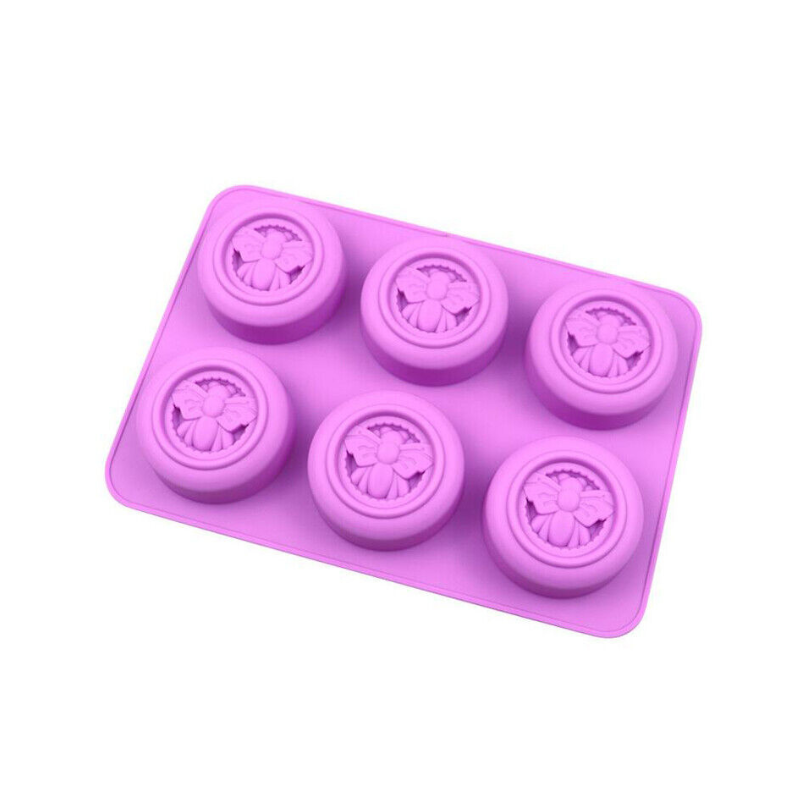6 Cavity Silicone Soap Mold - Bee Design
6 Cavity Silicone Soap Mold - Bee Design
Out of stock
Couldn't load pickup availability
Size: 21cm (L) x 14.3cm (W) x 2.4cm (H)
Cavity molds eliminate the fuss of having to cut your soaps, and make perfectly shaped bars every time. This 6 cavity silicone bee design mold will yield approximately 55g size bars of soap, making them perfect for hospitality services such as restaurants, hotels, spas, etc, as well as fun little soaps for the home. Mold colours may vary.
Uses & benefits
- Makes 6 x 55g (+/-5g variance)
- Mold is heat and cold resistant up to 230℃
- Food grade silicone
- BPA free
- Non-stick
- Microwave, oven, freezer and dishwasher safe (within temperature ranges).
- Mold can be used for soaps, chocolate, cakes, jellies, puddings etc
Buttermilk, honey & oat soap recipe
380g ice cold water
132g lye
250g almond oil
150g refined coconut oil
450g refined shea butter
100g avo butter
50g castor oil
3 tablespoons buttermilk powder
2 teaspoons honey powder
Optional but this is what I did: 2 tablespoon oatmeal and 1 tablespoon pink or white kaolin clay. Pink clay will yield a light pink tone to the soap. You could also add in 2 teaspoons each white gold and cerise micas, plus zinc oxide or titanium dioxide to strengthen the colour.
Fragrance: you can leave a fragrance out, otherwise try something like rose essential oil for a gently sweet rose scented soap. Rose complements milk, honey and oats pretty well!
Equipment needed:
Two bowls
Hand blender/stick blender
PPE: apron or lab coat, thick latex gloves, goggles
Loaf mold or other mold of choice
Scale
Method:
First, prep your colours. Separate out 50g of the almond oil and divide it into two small beakers. If using, mix the gold mica and zinc/titanium with the oil in one beaker and the cerise plus zinc/titanium in the other and set aside.
Mix the buttermilk and honey powders into the ice cold water until everything is dissolved and no lumps remain.
Weigh out and melt all the oils and butters together.
Mix the lye and the ice water solution together in a large bowl outside or in a very well ventilated area.
When your oil mixture and your lye solution have both reached room temperature (it is important that the two mixtures be relatively close in temperature), blend them together with the stick blender until a light trace is reached.
You will now need to work quickly!
Divide the soap mixture into two bowls and blend the clay and oatmeal separately into each one. Add the micas if using. I used the gold and oatmeal together in one half of the batch and the clay and cerise in the other half. Alternate pouring each half batch into your mold and make swirls if you like or just keep it in layers. Leave the soap batter to set up until hard (usually 2-3 days) then unmold, cut into bars and leave to cure for 8 weeks.

Perfect size for making round soaps to fit in a round dish and the bee design is uber cute!

